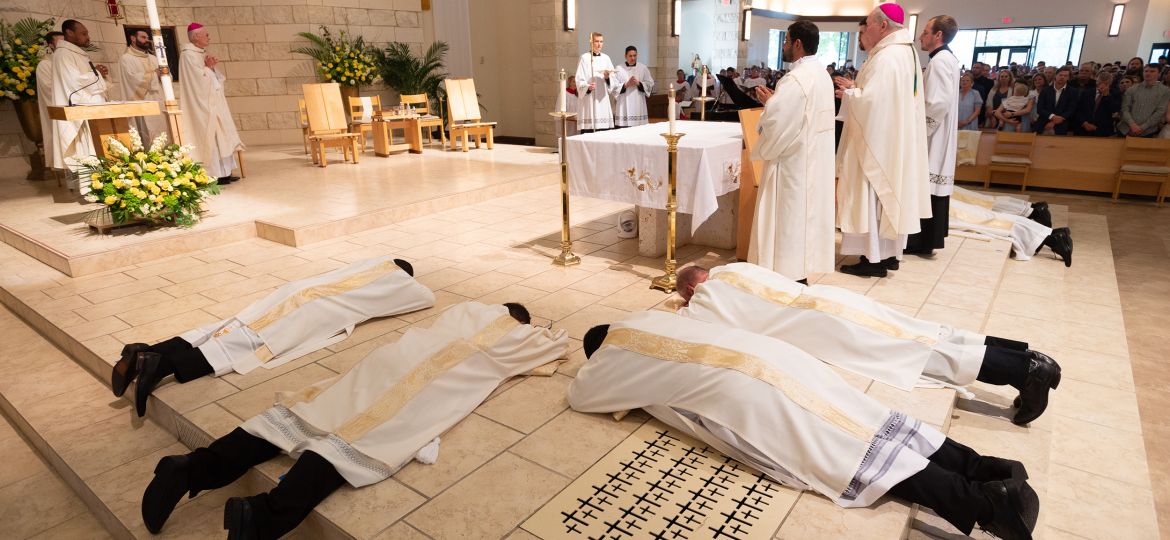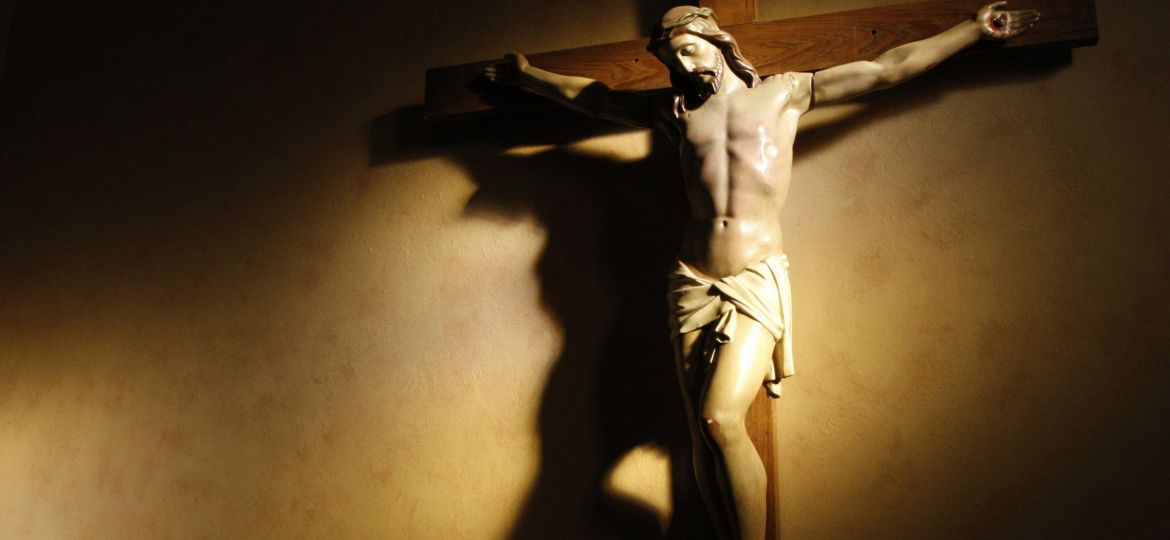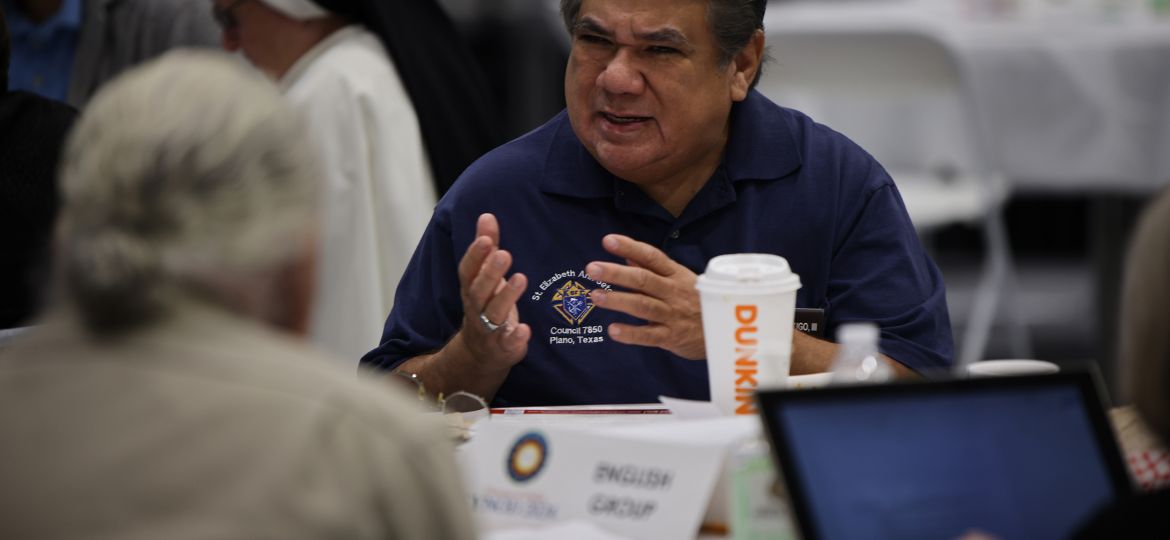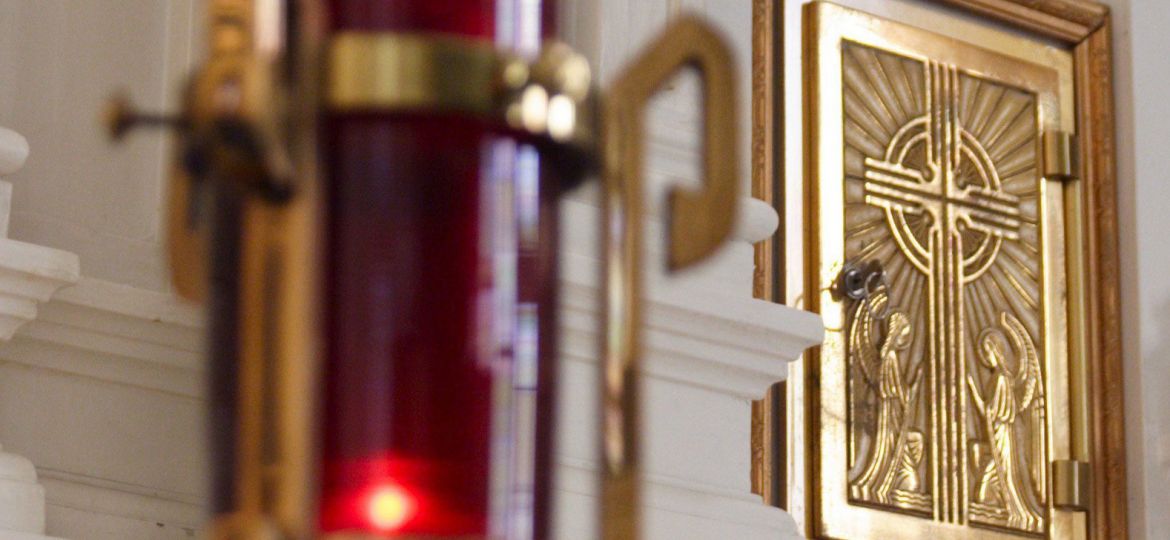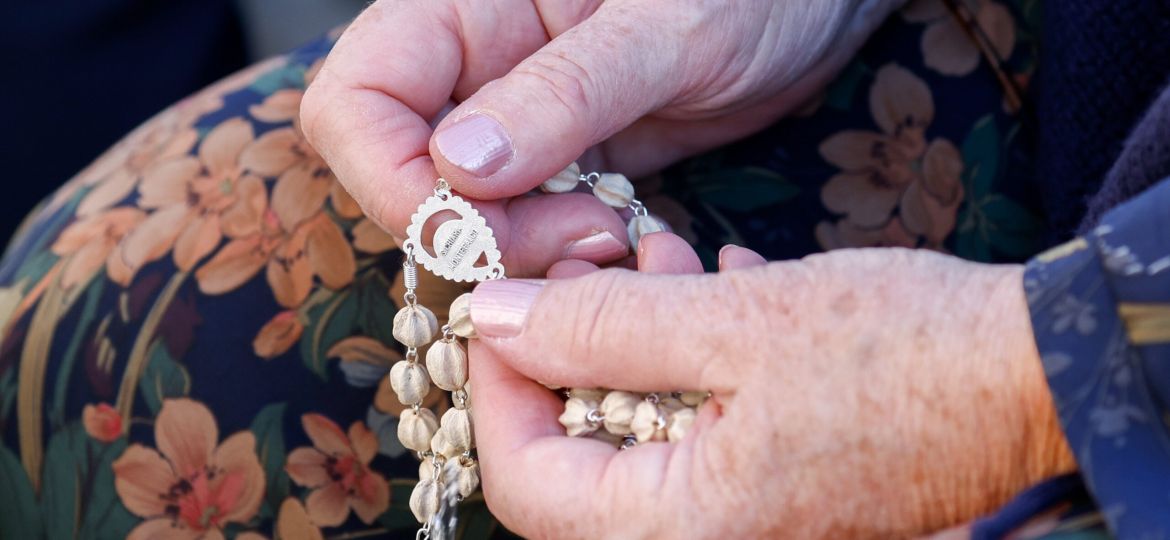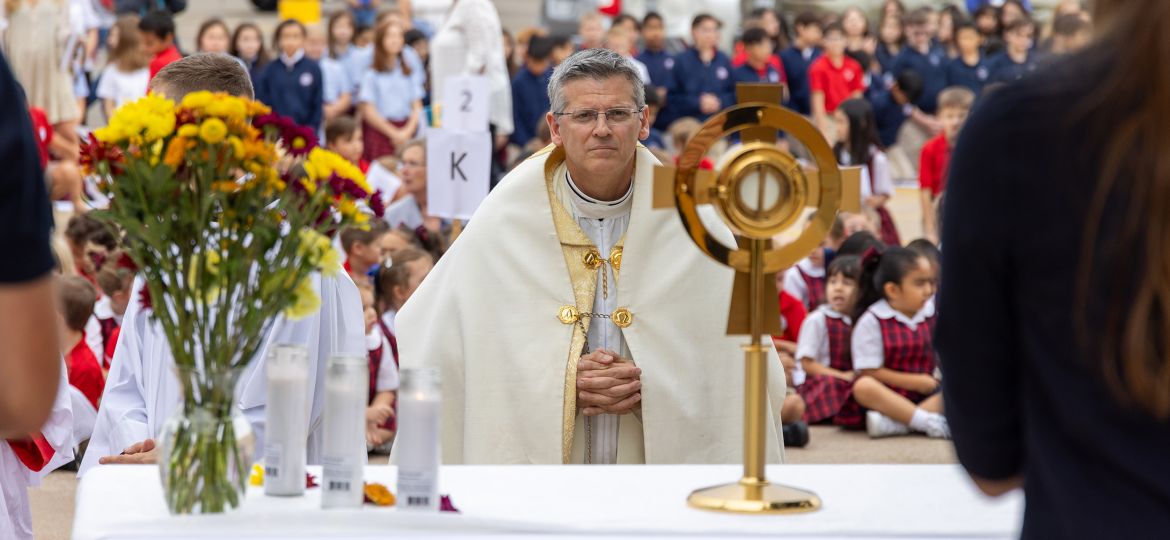There is a tendency to picture one’s discernment, whether the lifelong vocation question or a smaller decision, as a tense and perilous choice in an all-or-nothing, heaven or hell moment.
I was deeply impressed by the answer a fellow priest gave recently to a question that I ponder frequently. When asked to name one unifying cause for the troubles that plague us as American Catholics, he simply said, “I think we try to avoid suffering at any cost.”
No easy interpretation of Genesis 22 exists. The account of God’s test of Abraham is truly awe-ful. It gives us no psychological insights into the heart of Abraham or Isaac, and the sparse narrative details — the three days’ journey, the binding of Isaac upon the altar, the dramatic angelic intervention to stay Abraham’s knife — are terrifying in their raw simplicity. Yet these verses offer wondrous cause for meditation on the mystery of sacrifice.
My impression is that many people today think we live in unprecedented and negative times. They feel afraid as they watch ideologies make bold moves for economic and political power. In a certain basic sense, it is hard for me to agree that our times are unprecedented. The Church must struggle in every age, and we just don’t have that divine vision which would allow us to compare, definitively or apocalyptically, our own age with any other. On the other hand, I can easily understand the feeling that things are urgent; after all, these are our times, and so we are, quite rightly, sensitive to their dramatic character.
St. Paul seems to have defined the triad we know today as the theological virtues: faith, hope, and love. No Jewish source before him brings those three words together, and the pre-Christian pagans do not speak of them as interrelated virtues.
As a member of the synod preparatory commission, one of the exciting things I have seen is the synergy between clergy and laity in our diocese. Of course, we are still a pilgrim people, and the data we received from the listening sessions shows the need for further growth. Nonetheless, it has been beautiful, as a priest, to work shoulder to shoulder with so many dedicated lay people and priests on the commission and elsewhere, all of us wanting to try our best to give ourselves away for the good of the Church.
Profane and profanity are English words commonly used in reference to swearing, cursing, and hurling abusive language at someone. That’s an intriguing development from their Latin roots! A fanum is a temple or a sanctuary; attach the preposition pro to it, and you get “before/in front of/ outside the temple.”
In my experience, one of the most difficult aspects of being a priest and teacher is the thought that my actions have had negative effects on others.
The current Eucharistic Revival in the United States is generating a discussion of the role of Eucharistic Adoration in the life of the Church. While the practice is encouraged by many, some people have noted that devotions such as exposition of the Blessed Sacrament and Eucharistic processions were invented and popularized in the medieval period, and thus were not part of the early Church’s liturgical worship.
Mothers are gifted by God with unique insight into the mystery of life and its connection, for now, to the tragedy of death. Just think of Mary. Her maternity extended from Bethlehem to Calvary: to be a mother as God desires, Mary had to give life to a person destined to pass through death. Her fiat or “yes” to life at the Annunciation is not merely biological; it is a cooperation with God’s whole Providence for the one she births. That means that an ‘openness to life’ is at the same time a certain openness to death, and thus, for now, the joy of motherhood is always accompanied by pain (Gn 3:16; Jn 16:21).

